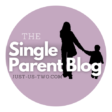Last updated on June 18th, 2021 at 03:48 pm
There are a lot of questions around the benefits of flash cards for toddlers. Are flash cards good or bad? When can I introduce flash cards to my baby or toddler?
This article aims to answer those questions and more, so read on to find all the information you need on toddler flash card advantages and learning through play tips!
Toddler Flash Cards Offer Bitesize Information
To capture their attention and hold their interest with a striking image on a card, is far easier than simply drumming words into a toddler and hoping that they are listening.
They Help Expand Your Child’s Vocabulary
When they see the card and you name it, that’s a brand new nugget of information for them. Buying packs of flash cards for toddlers might encourage you as the adult to say words to your child that you don’t use often or might not have thought to teach. Therefore your child is picking up new words that aren’t necessarily used in every day conversation.
Open Up Lines of Communication
Now armed with this new information, your toddler can be a lot more functional with their speech. Life for you as a parent gets easier when your child can use more words. Less need for guessing what they want or need – they can just tell you!

Improve Memory
The ability to remember is a skill that improves with practice! Flash cards make connections in your child’s mind between pictures, sounds and even feelings. The repetition involved with the use of flash cards will actually improve your child’s memory.
They Are Lots of Fun!
To a toddler – colours are fun! Numbers are fun! New sounds and new pictures are exciting. The whole experience of using flash cards is all about learning, but it feels like a game. That’s the key to their success!
What is the best way to use flash cards?

Contrary to what you might assume, a simple show, say and repeat method isn’t necessarily the best practice. Flash cards are actually best used in conjunction with other items, perhaps alongside a book or laid out amongst relevant real-world items.
Using the cards on their own might result in the child simply mimicking the sounds back to you. Using them as part of an activity can help put everything into context for your toddler and create a genuine new understanding of a word, how to say it, and most importantly what it means.
What Age is Best to Start Using Flash Cards?
Honestly, flash cards can be beneficial for different reasons at different ages and stages in development. Even as early on as the first few weeks of the newborn stage, high contrast tummy time cards can be used to give baby something to look at whilst building up those all important neck and core muscles.
Interesting pictures are valuable to a baby of any age.
From about 15 months, counting cards can be introduced, and from 18 months they are able to understand the concept of colours.
Complex shapes and the alphabet will start to become interesting to a toddler of around 24 months. But every child is different! Some get into these topics early, some later. The best thing to do is just have the materials available and keep reintroducing them periodically until they seem to take.

Where’s the best place to find UK toddler flash cards online?
Often, mainstream shops sell flash cards that are produced in America, which can be off-putting for parents residing in the UK as they use slight variations to the words commonly used here. Therefore it’s a good idea to look for flash cards on Etsy.co.uk, as you can check where the seller is from.
You can also find beautiful designs and shop for smaller flash card packs that are more tailored to what you want. You might even be able to message the seller and have them personalised.
Etsy is also a great place to look for toddler flash card downloads or free printables.

If this article has inspired you to try out some flash cards with your toddler, please feel free to browse my Etsy shop – MontiTod Designs.
And if you enjoyed this article or found it helpful, share it on social media! You might also enjoy reading CONTROVERSIAL “CRY IT OUT” SLEEP TRAINING: MY CHANGING OPINIONS
